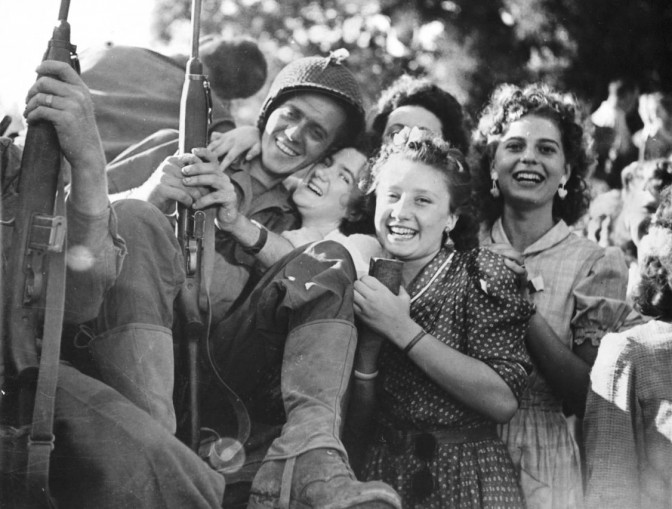Seventy years ago today, on 29 October 1944, the city of Breda in the Netherlands was liberated by the Polish Panzer Division. For the people of Breda, World War II had come to an end. Everybody was celebrating and girls flocked around the tanks to thank the brave men who had freed them from the Nazis. One of them was my great-aunt, Riet Flooren.

Allied soldier hugged by girls. Source: Collection Anefo, Nationaal Archief.
Riet was a 21-year-old fun-loving girl who was always the life of the party. She fell head over heels in love with a Polish soldier named Jan Napieralski. After only a few days together, he had to move on. He promised to come back for her after the war and marry her.
My aunt waited.
He never came back.
Her family thought she had been gullible, that she was probably one of many girlfriends. My aunt insisted he must have been killed. In time, she came to love another man and married him. She died in 1983, without ever finding out what had happened to her Polish fiancé.
Over twenty years after my aunt died, I heard about this story from my grandmother, Riet’s sister Toos. I decided to try to find out what happened to Jan Napieralski. A few online searches and queries led me to the website Polish Wargraves, where I discovered that he had died on 13 April 1945, just a few weeks before the end of the war. He died near a POW-camp in Germany, although the circumstances surrounding his death remain unclear.
Would he have come back for her? Many promised, few did. But I know it would have given my aunt great comfort and closure to know that he was killed in action and unable to return to her, just like she always thought.



What a wonderful story that tugs at the heartstrings. Although she went on to live what I hope was a happy and long life I am sure that there was a small part of her who never forgot that first love. How tragic that he died so young in the midst of such a terrible war and we will never know what might have been.